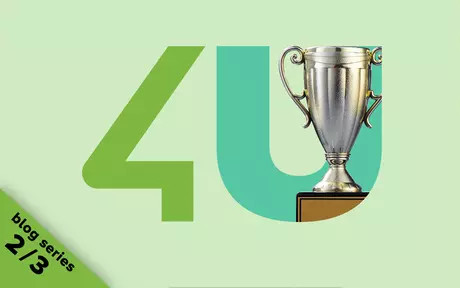
ERP helps to power cost control and streamline procurement practices
Procurement teams have long since been battling the reputation of using time-consuming and inefficient, clunky processes, especially when requests for goods and services are processed manually using a combination of phone calls, emails, paper catalogs, and spreadsheets. Service-based businesses continue to work remotely and the need to buy goods such as IT equipment remains, so ERP procurement solutions can help to source these goods at the best cost and promptly by saving valuable time with easy-to-use capabilities, reducing costs by channeling purchases to approved suppliers and pre-negotiated contracts, and improving visibility by rendering real-time information into company spend and vendor performance.
ERP solutions streamline and improve the accuracy of the procurement process by automating and linking key transactions and providing approval and matching workflows to support internal controls and compliance requirements.
Procurement processes can be fairly repetitive, but automating some of these manual, repeatable, and labor-intensive tasks can free up your procurement team to focus on other key tasks, speeding up processing, and reducing errors along the way.
Service-based organizations need to optimize spending, regulate costs, and streamline practices to improve efficiency, reduce maverick buying, and negotiate better terms and prices with suppliers. A fully integrated ERP procurement solution will support, automate, and standardize all phases of your purchasing cycle, allowing your team to make smarter and more efficient procurement choices. These more efficient purchasing methods will elevate your business above the competition as the quick and simple changes will make your firm more adaptable and resilient.
Let’s look at just of few of the things ERP procurement could do for your organization:
Purchasing
ERP procurement will allow you to find products on internal catalogs and submit purchase requests, send order acknowledgments, and receive confirmations from suppliers. It standardizes and automates every stage of the purchasing cycle, from requisitions to payment. ERP procurement solutions will best suit remote, occasional, centralized, and decentralized teams.
Commitment Accounting
An accurate overview of available funds before spending prevents budget overruns and maverick spending. You can define procedures according to organizational needs with fund checks connected to transactions such as purchase requests, projects, and work orders.
Incoming Invoices
The electronic invoice management system within our ERP solution enables cost savings from reduced time-to-pay processing, reduced administration, and reduced human error.
Contract Management
With a central repository for finding and accessing contracts, your team can raise purchase requests, purchase orders, incoming invoices, and contract references and automatically ensure they match all contract details.
What benefits could your service-based organization achieve through automating your procurement practices?
1. Cost Savings
Having a wider reach when it comes to suppliers will ultimately mean you can cut costs. Automation means you can reduce manual effort and paperwork, save time on approval requests, and access to historical supplier data allows greater negotiating power and lower purchasing costs. Procurement activities become more controlled with budgeting management and cost centers per department or project. These benefits will prevent you from misusing data and provide you with better financial planning.
2. Streamlined Processes
From the filling out of forms to requesting approvals, the whole process becomes hands-off with automation. Nothing gets forgotten or lost, and there are no costly delays. Human intervention is minimized and reserved for only the tasks where it is necessary. Timeframes are shorter, efficiency is boosted, and resources can be managed better. It also improves communication with both suppliers and internal stakeholders, which improves the overall supplier relationship. Finance gets faster, more accurate reports, and business leaders can make strategic, agile decisions based on insightful data.
3. Reduced Risk
With the greater transparency and visibility provided by automation and having a single source of truth, comes improved awareness of your whole procurement environment. An automated procurement process allows your team to anticipate where the next risk may come from and prepare accordingly. Tracking project spend avoids improper use of funds and budget overruns, and when the spending process is carried out and all records stored electronically, you ensure complete visibility and traceability.
4. Optimized Supplier Relationship Management
Managing relationships with suppliers is one of the most important parts of procurement. ERP can help nurture those relationships and streamline communications with your suppliers. You will create a strong supplier database, and your ERP will collect and organize all the supplier information you need. Great supplier relationships require transparency, on-time payment, and proactive communication from both sides. A fully integrated ERP software system will balance your sales demands, buying processes, and inventory controls with the capabilities of your suppliers, allowing a clearer understanding of both parties’ business needs.
In effect, improving and automating your procurement processes cuts costs, saves time, increases productivity, and improves supplier relationships. Increased productivity means better utilization of resources and potential business growth. The right ERP system can put you on the right track to success and give you the right tools to help you streamline tasks, boost productivity, leverage data in real-time, and empower your procurement teams to do better – which, in turn, will boost employee value and satisfaction.
How can Unit4 help improve your purchasing processes?
Unit4 ERP Procurement helps purchasing managers and departments stay organized and ahead of the chaos. It’s vital you make the best use of your precious resources. Labor-intensive legacy systems and manual processes no longer fit requirements, so why let them hold your organization back?
Give your people the time, visibility, and control they need to make a difference and build success. To learn more about how Unit4 can transform your procurement function, check out our flyer here or click here to book a demo of our suite of products.
Read the rest of this blog series




